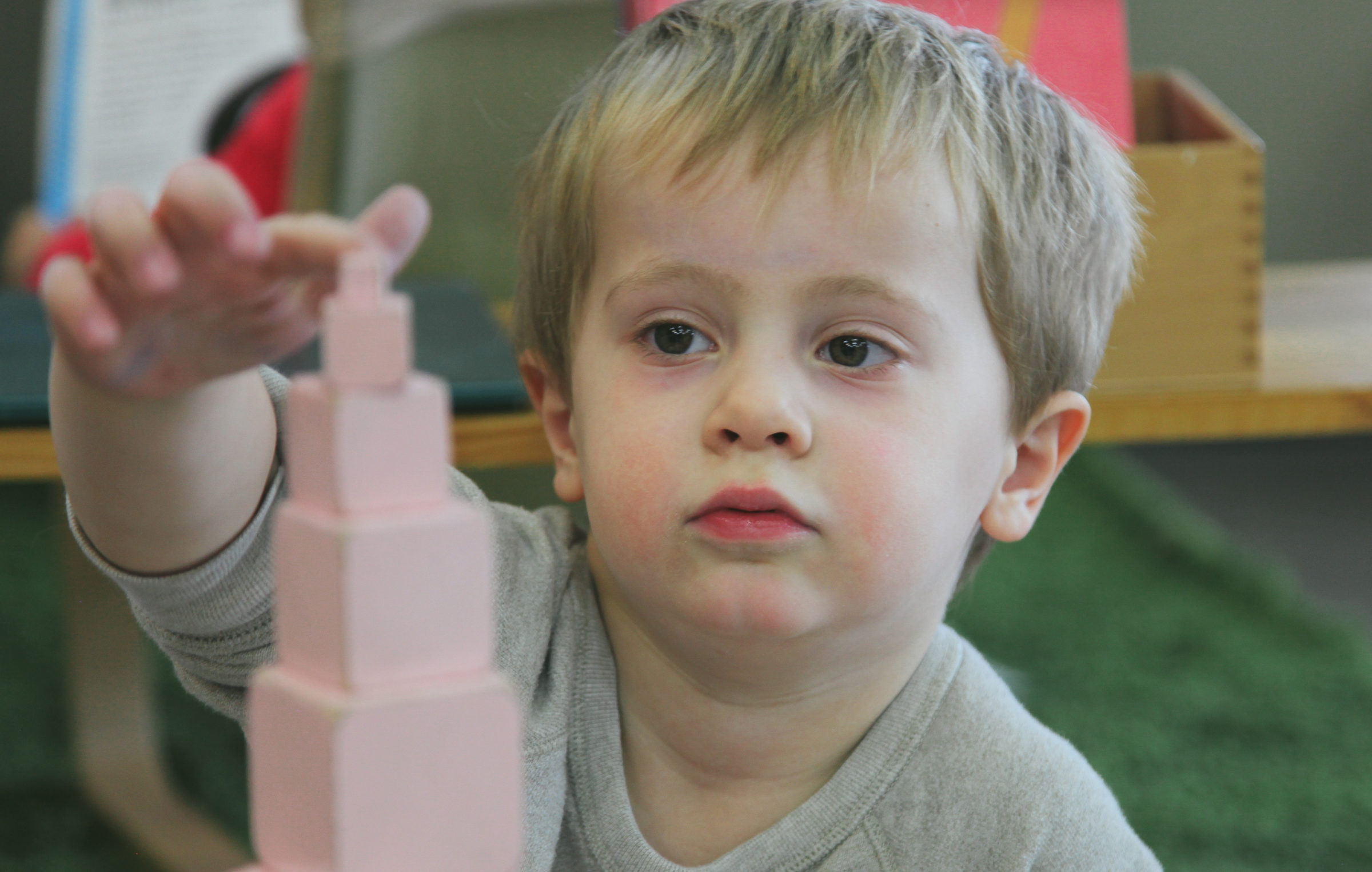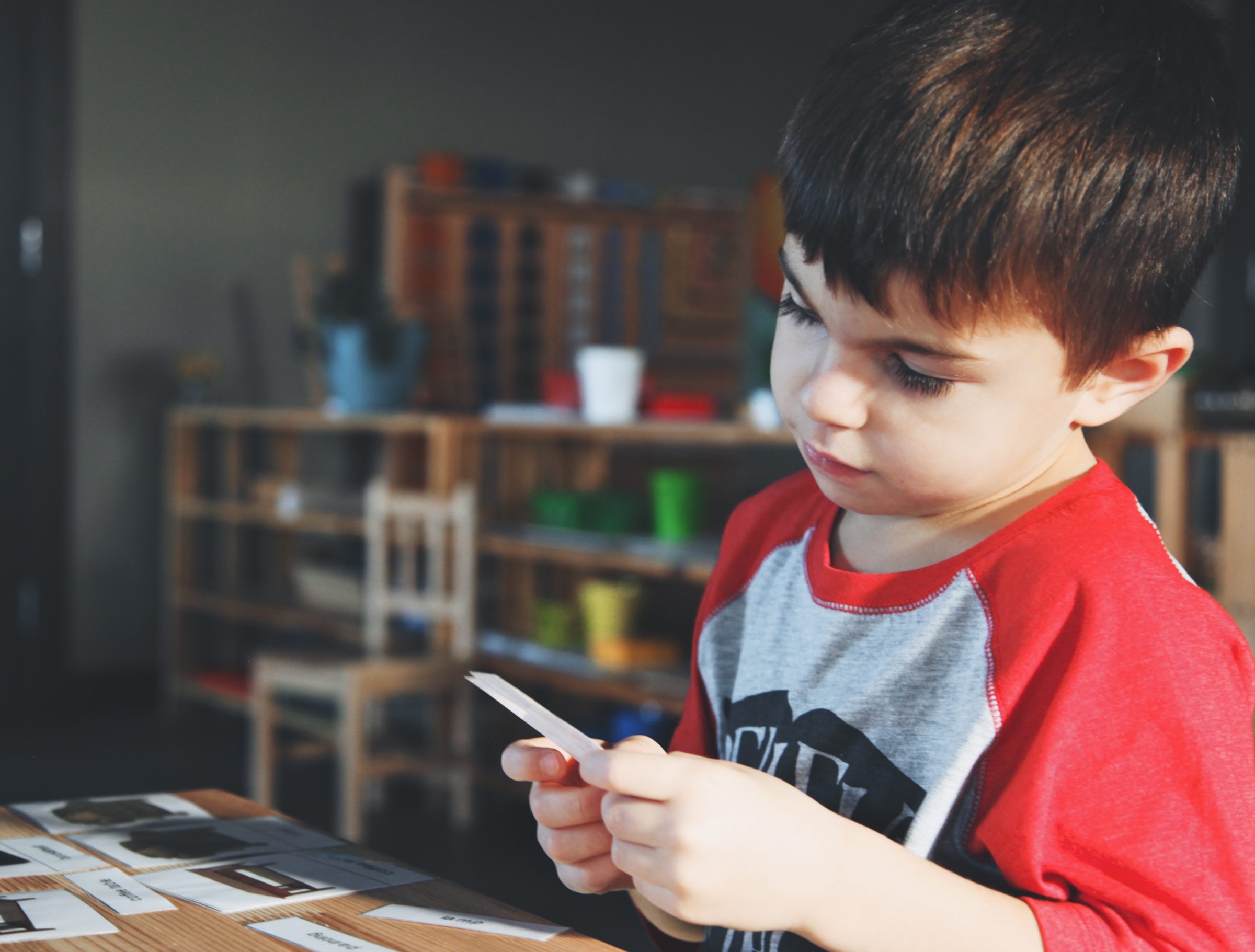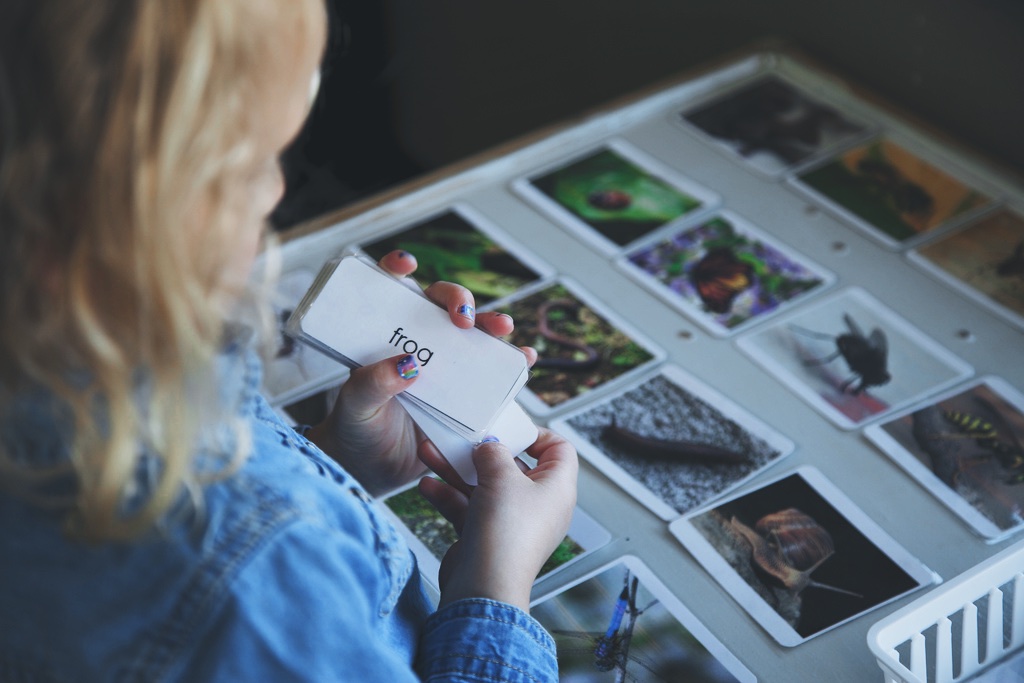On Making Mistakes
Thoughts & Reflections

Maria Montessori had so many original and wonderful insights into early childhood education. One of the most under appreciated, and subsequently misunderstood, is the idea of mistakes – of having the space, confidence and ability to make them – and the power of determination that comes from within. When you overcome your mistakes to accomplish a task, you build the moxie and fortitude to, well, accomplish just about anything.
Of course, everyone has probably heard, in one form or another, this fundamentally sound, inspirational, and often conciliatory phrase: “making mistakes is important.” Many of us might even recall a specific conversation with our parents, teachers, or friends, as they consoled us on a failed achievement. – “There’s so much you can learn from this experience,” they motivate. “These types of mistakes will make you stronger,” they empower. “We made the exact same ones,” they confide. – Some of us even have our own favorite quotes. Here’s ours, from Alexander McQueen. “You can only go forward by making mistakes.”
“ Yet, why are mistakes important? Why do they help us go forward? Is it a cliche to say there’s value in mistakes? ”
Montessori: “While the progress the children make seems wonderful, it can only be attributed to the freedom they have in exercising themselves. With methods in general use, teachers must very often correct children. Each time they make a mistake, the teacher must correct them. We, on the contrary, advise that children should not be corrected, that they should be free to make mistakes, not in an absolute sense, but only in their spontaneous efforts for perfection.”
Perfection, to be sure, should not be read in terms of some sort of geometric exercise in which everything must line up just so – which creates anxiety, frustration and, some might say, complacency of thought. Rather, perfection should be understood in terms of the effort required to improve: the sense in which confidence is continually acquired to better our abilities and expand our way of thinking about the world. In this sense, perfection must be thought of in terms of the attainment of one’s interests, and not the correction of an ability. As Montessori says, it’s more spontaneous than calculated.
While traditional approaches to early childhood education are often structured in such a way as to prevent mistakes, Montessori says the exact opposite. Mistakes are important, she relays, not because they are mistakes, but because they allow the freedom to experiment, discover and ultimately explore. As she explains, “If we interrupt to correct, we may distract the attention which has just awakened, the phenomenon on which we must rely if they are to perfect themselves.” If we interfere with the process, in the name of the product, we limit the capacity to create. At the end of the day, what matters most is the passion that is developed in accord with one’s interests.

At the same time, Montessori extends this observation, and takes the idea of making mistakes one step further. By way of example, she elucidates the capabilities that are required to have the opportunity to make a mistake in the first place, and expounds on the processes involved. In an instructional instance, in which she cites the color tablets exercise, Montessori writes:
“As an example of an error easily made is when children are placing, let us say, eight shades of the same color in an incorrect order. They put the light where the dark should be in this given order of shades. In our lesson we make children understand how and in what gradation of color they must place the shades. If they do not place the shades all in order, it means that they have not acquired the power of perceiving these slight differences in the gradation of colors.”
The irony of mistakes is that you can’t make them if you don’t have the space to experiment, but you can make them if you don’t yet have the ability to accomplish the task. Hence, the vital import of teachers, or what Montessori affectionately referred to as ‘guides’, who put the children in touch with the materials. As such, guides are trained observers, educated and empowered to respond to the individual needs of each and every child. Without imposing their will, they serve children by following their interests.
“ “The teacher must learn, not to teach, but rather to observe.” ”
Which is to say, as Montessori does: “If we were to correct them, we would attain the superficial goal of the children putting the shades in line, in order of gradation of color, but we would not succeed in giving the children what they lack, namely, the ability to distinguish between these different shades. It would take a supernatural power to make children see what as yet their eyes cannot see, to give perfection as if by miracle to one who still lacks ability and must gain it only through their own efforts.”
What this instance affords, then, is a rather comprehensive question that could easily be applied to a number of cases where mistakes are on the line. Namely, how do we provide the optimal conditions for children to discover their abilities and pursue their interests? Here, the question is specified to our current example: “What must we do so that children may succeed in putting this colors in order of gradation?”
The traditional response would be to show the children their errors, identifying where and how the mistakes were made, and entrusting that they won’t make the same mistake twice. This approach, of course, smacks of familiarity. This is the way most of us were taught. For Montessori, however, a different approach is required. As she writes, the goal is not to have us correct their mistakes. Rather, the ambition is to “keep their attention fixed in these exercises in such a way that they will continue the exercises themselves until they have developed the ability to distinguish the shades”.
Written by:
Bobby George



